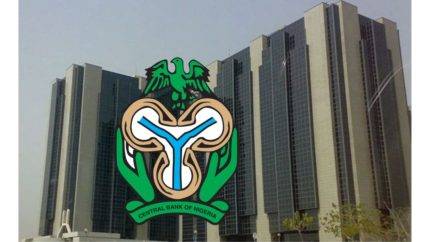The Central Bank of Nigeria (CBN) has announced the extension of its suspension on processing fees for cash deposits. This decision, which comes as a relief to many, will see the waiver of fees on cash deposits above the threshold of ₦500,000 for individuals and ₦3,000,000 for corporates remain in effect until September 30, 2024.
The central bank’s directive was communicated through a memorandum dated May 6, 2024, signed by Adetona Adedeji, the director of banking supervision at CBN. This move is seen as a proactive measure to support economic recovery and ease the financial burden on various stakeholders in the wake of the COVID-19 pandemic and its lingering effects.
CBN Cites Previous Suspension of Processing Fees
In the memorandum, the Central Bank of Nigeria referred to its earlier letter dated December 11, 2023, which had initially suspended the processing charges imposed on cash deposits exceeding the stated thresholds. The charges, originally outlined in the “Guide to Charges by Banks, Other Financial Institutions and Non-Bank Financial Institutions” issued on December 20, 2019, had previously imposed fees of 2% and 3% on cash deposits above the specified limits.
The central bank’s decision to extend the suspension of these fees underscores its commitment to supporting economic growth and promoting financial inclusion. By alleviating the burden of processing charges, the CBN aims to encourage greater participation in the formal financial system and facilitate the smooth flow of cash transactions across various sectors of the economy.
CBN: Facilitating Economic Recovery and Financial Inclusion
The extension of the fee suspension is expected to have far-reaching implications for individuals and businesses alike. For individuals, it means a reduction in the cost of making cash deposits, potentially encouraging greater savings and investment. On the corporate front, the waiver of fees on larger cash deposits could provide much-needed relief for businesses grappling with the economic challenges posed by the pandemic.
Moreover, the CBN’s move is seen as a step towards promoting financial inclusion, a key priority for the central bank. By removing barriers to accessing formal financial services, the suspension of fees could encourage greater participation from underserved segments of the population, thereby fostering economic empowerment and inclusive growth.
CBN: Stakeholder Reactions and Market Sentiment
The CBN’s decision has been met with a positive response from various stakeholders, including consumer advocacy groups, business associations, and financial experts. Many have applauded the central bank’s proactive approach and its commitment to supporting the nation’s economic recovery efforts.
Market analysts have also weighed in on the potential impact of the fee suspension, with some predicting an uptick in cash transactions and increased liquidity within the banking system. However, concerns have been raised about the potential strain on bank revenue streams, highlighting the need for financial institutions to explore alternative revenue sources and streamline operational costs.
CBN: Monitoring and Regulatory Oversight
As the suspension of processing fees on cash deposits continues, the CBN will be closely monitoring its impact on the financial sector and the broader economy. Regulatory oversight and periodic assessments will be crucial to ensure compliance and address any potential issues that may arise during the implementation phase.
Furthermore, the central bank is expected to engage in ongoing consultations with stakeholders, including banks, financial institutions, and consumer groups, to gather feedback and make necessary adjustments to the policy as needed. This collaborative approach aims to strike a balance between promoting economic growth and maintaining the stability and integrity of the financial system.
CBN: Paving the Way for Economic Recovery and Financial Empowerment
The CBN’s decision to extend the suspension of processing fees on cash deposits until September 2024 is a significant step towards facilitating economic recovery and promoting financial empowerment. By alleviating the burden of additional charges, the central bank aims to encourage greater participation in the formal financial system and support the growth aspirations of individuals and businesses alike.
As Nigeria navigates the challenges posed by the global pandemic and strives to build a more resilient and inclusive economy, the CBN’s proactive measures are poised to play a pivotal role. By fostering an environment conducive to financial inclusion and economic growth, the central bank is paving the way for a brighter future, where access to financial services is within reach for all segments of society.
Table of Contents
Discover more from OGM News NG
Subscribe to get the latest posts sent to your email.














